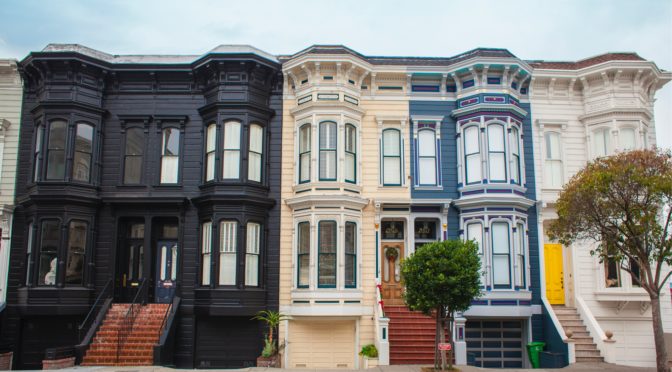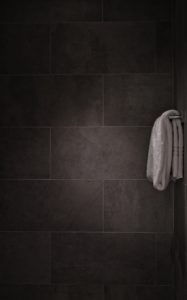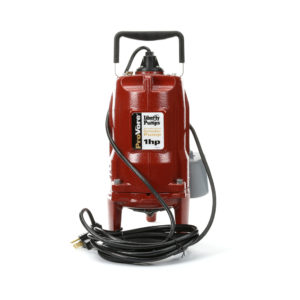
As a landlord, whether you’re renting single-family homes, duplexes, or town houses, you’re running a business with the potential to take up all of your free time and then some. When you add the need to keep your tenants’ basements dry through a competent sump pump system, it’s no surprise that many landlords either have significant plumbing experience or have multiple plumbers on speed dial.
Fortunately, if you choose a good sump pump and backup system and carefully tie it to your rental property’s needs, you can significantly reduce the likelihood of needing to call said plumbers or draw on your hard-earned plumbing experience in the middle of the night. As any experienced landlord will attest, the less time you spend putting out fires at your property (or properties), the more money you get to keep from rent in your pockets. We recently shared our suggestions for the best sewage pumps for efficient landlords, and today we’re going to show you the best low-maintenance sump pump setups for making a living as a landlord. We’re putting together an article on the best maintenance-free toilets for rental properties soon.
As always, double check with an attorney if you’re debating over whether you’re legally required to provide any services as a landlord. We’d always recommend working from a mindset of keeping tenants happy over one of trying to do as little as possible to help them. It’s not just your wallet at stake, after all; it’s also your reputation and your responsibility as a decent human being.
Are you required by law to have a sump pump as a landlord?
Generally, you’re not going to find tenant codes across the US telling you that you have to have a sump pump if you rent out property with basements, but if you have to ask this question, you probably should have one. The last thing you want to do is find yourself in court or hiring legal counsel to represent you due to flooded basements, mold, or worse, while you argue that you weren’t legally required to provide the most basic system of flood prevention to your tenants. Even if you win such a case in the short term, you still lose in the long term.
How to tell if you need a sump pump for your rental property
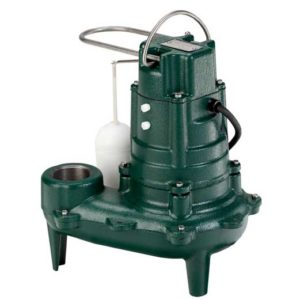
The quickest way to tell if you need a sump pump in a rental property is to examine the property itself. If there’s already a sump pump or pit there, that’s about as clear of a sign as it gets. If there isn’t a sump pump there but you find water in the basement after rainfall, you’ve got another direct answer. If you notice any standing water outside or around the property after a decent rainfall…you get the idea. If you can’t examine the property itself (for example, if you’re purchasing it as an investment, tear down, or as/is property), you’ll want to either check with neighbors or review the flood maps for the neighborhood. Talking with the neighbors is always a good idea anyway, as they’ll give you more information about the neighborhood than you’ll find anywhere else, and we’re not just talking about flood risks.
Do you need a backup sump pump as a landlord for your tenants by law?
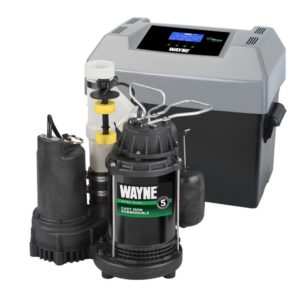
We’ve established that the law isn’t where you should hide behind when it comes to whether or not to install a primary sump pump, but the actual needs of the property. The same applies to the question of whether or not to install a backup sump pump. While you might fulfill legal obligations by simply having a main sump pump, the practical end of landlording dictates that if that pump stops working, whether due to a power outage or mechanical failure, your tenants will rightfully expect you to either get it working immediately or pay for and repair the damages caused by its malfunction. Buying and installing a backup sump pump is far cheaper than either of the aforementioned options. So again, it’s not something you’ll need to do, but it’s something you’ll want to do.
Is a battery-powered sump pump or a water-based sump pump better for a rental property?
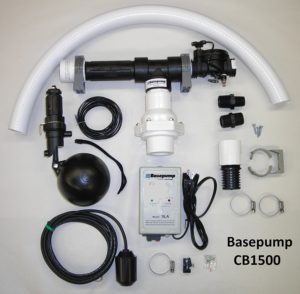
Now that we’ve made it clear that you’ll want a main pump and some kind of backup pump if you’re planning on keeping a good reputation as a landlord in the long term, the next practical question involves whether to buy a battery-powered sump pump or a water-based sump pump.
The truth is that either can work; what matters more is your risk tolerance and budget. Dollar for dollar, you’ll get much faster performance from a battery-powered system than you will from a water-powered backup pump, but a water-powered system will ultimately be more reliable in most situations, as it is ultimately powered by your rental home’s municipal water system rather than its electrical grid.
If your tenants lose power for a week, a battery-powered system will probably run down unless you replace the battery. Replacing the battery will either cost you time (time spent traveling to your rental and replacing the battery), time and money (time to replace the battery and money to buy it since you didn’t have a spare in your home), or money (to pay someone to replace the battery for you, whether or not you also need to buy one).
On the other hand, with a water-powered system, there’s nothing to run down. Yes, water supplies do shut down every now and then, but it’s much, much rarer than electrical grid outages. In the mean time, there’s pretty much nothing to maintain with a water-based system. If you don’t want to have to visit your rental or pay someone to do so for flooding reasons, a water-based system is a very valuable investment.
What are the best AC, combination, battery-powered, and water-based sump pumps for hands-free rental properties?
Finally, if you’re interested in the best investments in various kinds of sump pumps to reduce the amount of time you’re likely to need to spend at your rental properties, here are our recommendations. Our full reviews on recommended sump pumps are here, while the links below will take you directly to the pumps online.
Need an AC sump pump? Get the Zoeller M267. Need a combination AC/DC sump pump? You want the Wayne WSSM40V. Need a battery-powered DC sump pump? Get the Wayne WSM3300. Need a water-based sump pump? Our favorite is the Basepump CB1500.
If you find our work at PumpThatSump helpful, you can support our relentless reviewing of every sump pump on the market by shopping via our Amazon link for whatever you need to make your house a home. Despite being self-employed, we promise not to spend it all on health insurance.

